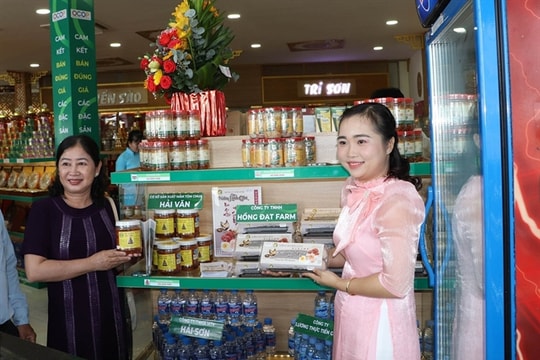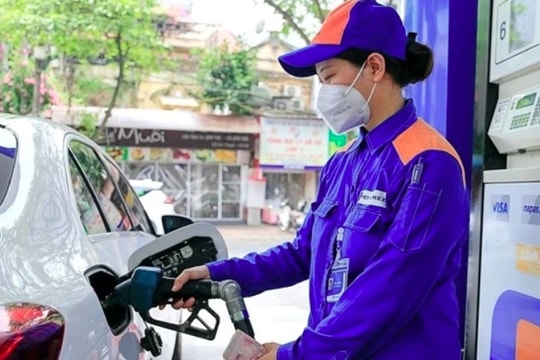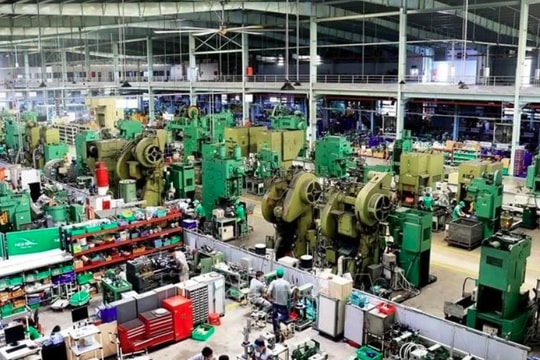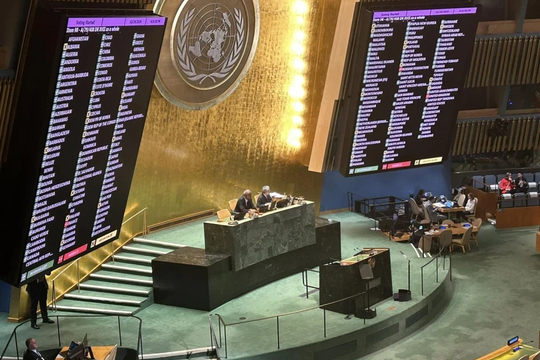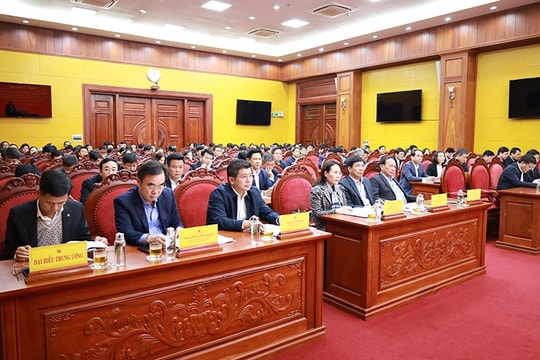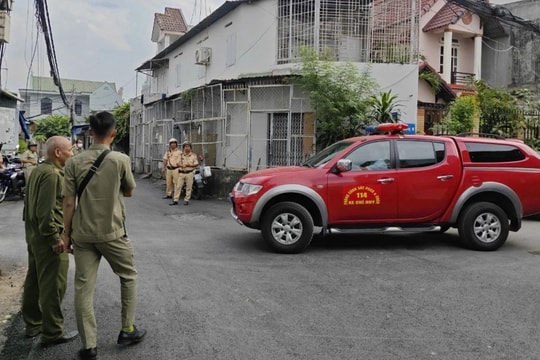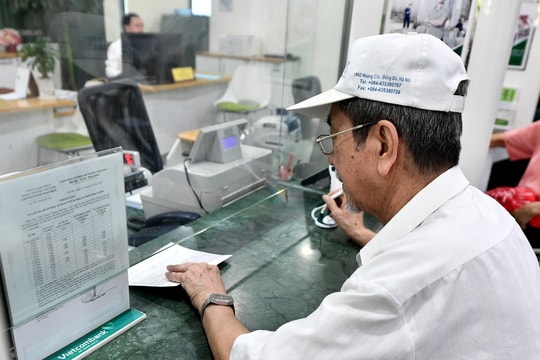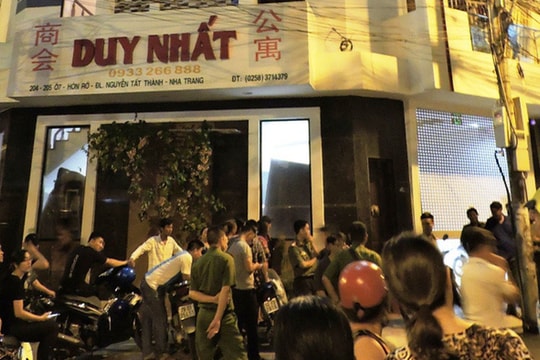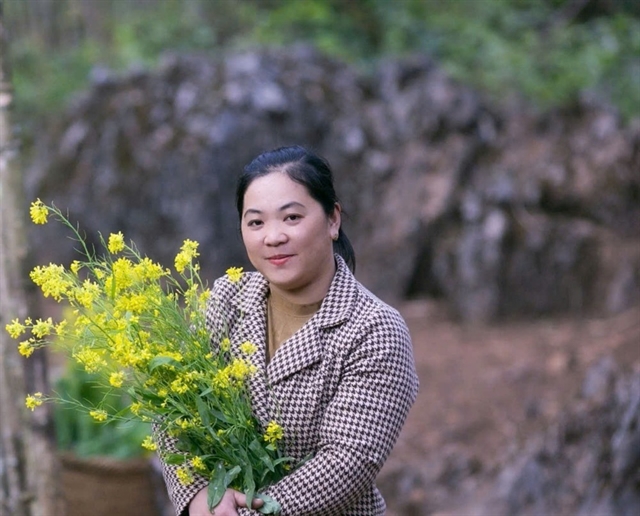 |
| Lý Thanh Trầm, a teacher who has devoted her time and happiness to ethnic students in a remote hamlet. — Photo tienphong.vn |
CAO BẰNG — A teacher in a remote mountainous northern province has spent her youth and sacrificed family happiness for her ethnic minority students.
The teacher is Lý Thanh Trầm, who works at Cà Lò, a satellite campus of the Khánh Xuân semi-boarding School for Ethnic Minorities in Khánh Xuân Commune in Cao Bằng Province's Bảo Lạc District.
Trầm was born in 1991. After graduating from Pedagogical College in Hải Dương Province, she returned to and worked in her hometown in Bảo Lạc District.
After six years of nurturing people, she was assigned to Cà Lò – a remote hamlet with no electricity, no water and no phone signal.
At the time, Trầm was 26 years old and the mother of a two-year-old son. She entrusted her child to her parents' care and rode her motorbike into the mountains to teach children from the Dao ethnic group, who could barely speak standard Vietnamese.
Trầm's home is in Xuân Trường Commune, 80km away from Cà Lò hamlet. While this might not seem far in the city, in mountainous areas, it is a significant challenge, even for someone as accustomed to hardship as a female primary school teacher.
"The roads have been cleared but are still very difficult to traverse. The first eight kilometres along the national highway are relatively easy, but the next ten kilometres involve pushing the motorbike along narrow paths,” recalled Trầm.
“Therefore, I could not commute daily. I had to stay at the school in the teachers' quarters,” she told tienphong.vn.
"Cà Lò is the most challenging hamlet to reach in Khánh Xuân Commune. It is over 30km from commune’s centre. Here, many women cannot read or write. The men, being more educated, sometimes leave for work as hired labourers,” she said.
 |
| Cà Lò, a satellite campus of the Khánh Xuân semi-boarding School for Ethnic Minorities in Khánh Xuân Commune, Bảo Lạc District, Cao Bằng Province. — Photo tienphong.vn |
The Cà Lò campus has two classrooms, with combined-grade classes and sparse student numbers, including five grade 1 students, two in grade 2, five in grade 3 and eight in grade 4.
According to Trầm, teaching combined classes is difficult when delivering lessons.
Seven years ago, when Trầm first arrived, students were very reluctant to attend school, although their home is only one kilometre away.
She said: “There were times I cried out of frustration. After overcoming treacherous roads to be with the students, they did not show up. As the head of the school, I had to visit each household to persuade parents to send their children back to school, but I wasn't always successful. I failed on my very first attempt.”
Her worries about the children's education and the challenges of eradicating poverty in Cà Lò kept her awake at night.
But she eventually found a solution: organising meals for students at school.
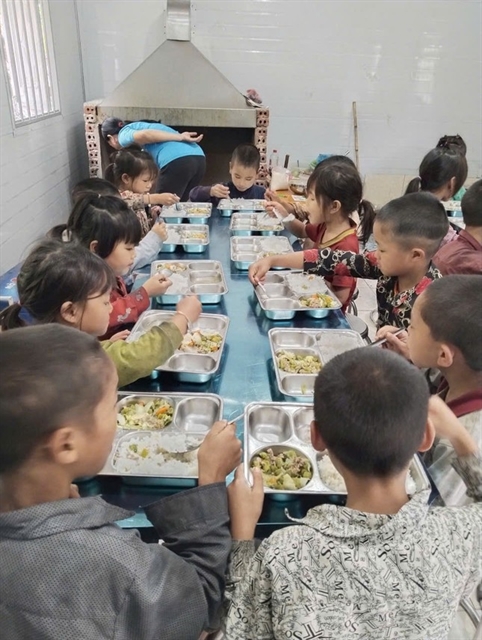 |
| Students eating lunch at school. — Photo tienphong.vn |
Having lunch at school fostered a stronger bond between the students and teachers. After lunch, the children would play outside for a while before returning for afternoon classes, eliminating any excuses to skip school, she said.
Teaching children from families that communicate exclusively in their ethnic language requires patience, and teachers must learn the students' native tongues.
Bảo Lạc District is home to numerous ethnic groups. The students in Cà Lò are ethnically Dao, while Trầm is from the Tày ethnic group.
Trầm had to learn several ethnic languages. In class, teachers give bilingual lectures, alternating between standard Vietnamese and Dao.
If the students did not understand Vietnamese, teachers switched to Dao until the students gradually became fluent in Vietnamese.
Trầm proudly shared: "Now, not only do the students speak Vietnamese, but some parents can also speak it, albeit with limited vocabulary."
The winters in the border regions are often cold. After seven years in Cà Lò, Trầm has experienced snow three times.
Most of the families in Cà Lò Hamlet are poor so they cannot afford new clothes for their children, even for Tết (Lunar New Year).
“New clothes are rare, and old clothes are often torn because parents may only buy new outfits for their children every few years on very special occasions," she said.
She felt so sorry for the children that she sought clothes from charitable organisations to give them.
She recounted: "During Tết, not every Dao family in Cà Lò has bánh chưng (traditional sticky rice cakes). Only families with better conditions can make a few bánh chưng for their children. A handful of bánh chưng is all they have to celebrate Tết."
Life in Cà Lò is extraordinarily challenging and isolated from the modern world, but the area is filled with warmth and compassion.
Trầm said that whenever teachers called for help, parents always worked together to give assistance. They were willing to help the school repair classrooms and level the ground for the kitchen. The relationship between the parents and the teachers is as close as family.
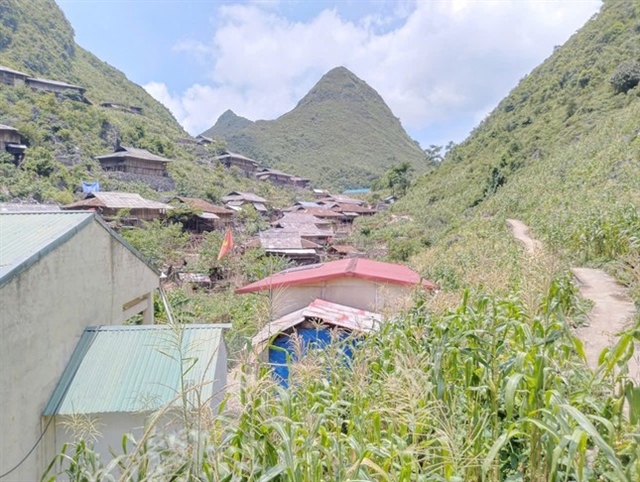 |
| Cà Lò Hamlet in Bảo Lạc District, Cao Bằng Province. — Photo tienphong.vn |
Hard to say Goodbye
Trầm was recently transferred to a school closer to her home, where there is electricity, phone reception or Internet access.
When she bid farewell, the parents held her hand and said: "We do not want you to leave. We just want you to stay here."
But Trầm had to leave, because she had recently discovered health issues that prevented her from living in Cà Lò.
After seven years away from home, her son had grown into a teenager, and she said she also needed to spend more time with him, since she was both his mother and father.
"I divorced my husband when he was still young. It was my fault that I could not be home often enough to take care of the family and nurture my child like a normal wife and mother," she admitted.
Trầm revealed that there were times when she felt emotionally drained and wanted to leave Cà Lò and the Dao children to return home. But her parents encouraged her: "Let the child stay with us. We will help take care of him. Nothing will stay hard forever. The roads in Cà Lò will improve, and life will get better."
Listening to her parents' encouragement, Trầm found the strength to continue. Life cannot go on without hope and faith.
During her more than seven years at the Cà Lò school, Trầm understood the hardships faced by the people there.
She said: "Here, there is no tap water, no natural water sources; everything depends on the weather. If it rains, people collect more water to use for an extended period. But if it does not rain, every household faces a water shortage. For example, during this time, there is no rain, only fog, and the people do not have enough water. To get water, they have to go very far."
The teachers at the Cà Lò school employ every possible method to conserve water: "We do not pour away the water used to rinse rice; instead, we boil it to wash dishes. Bathing and washing are done quickly and minimally. If we want to bathe properly, we have to wait until the weekend when the students are off, and we can return home."
The people of Cà Lò lived without electricity for many years, but now they have electricity from solar energy.
At night, each house has some light, though it is still not enough to dispel the overwhelming darkness completely. — VNS



